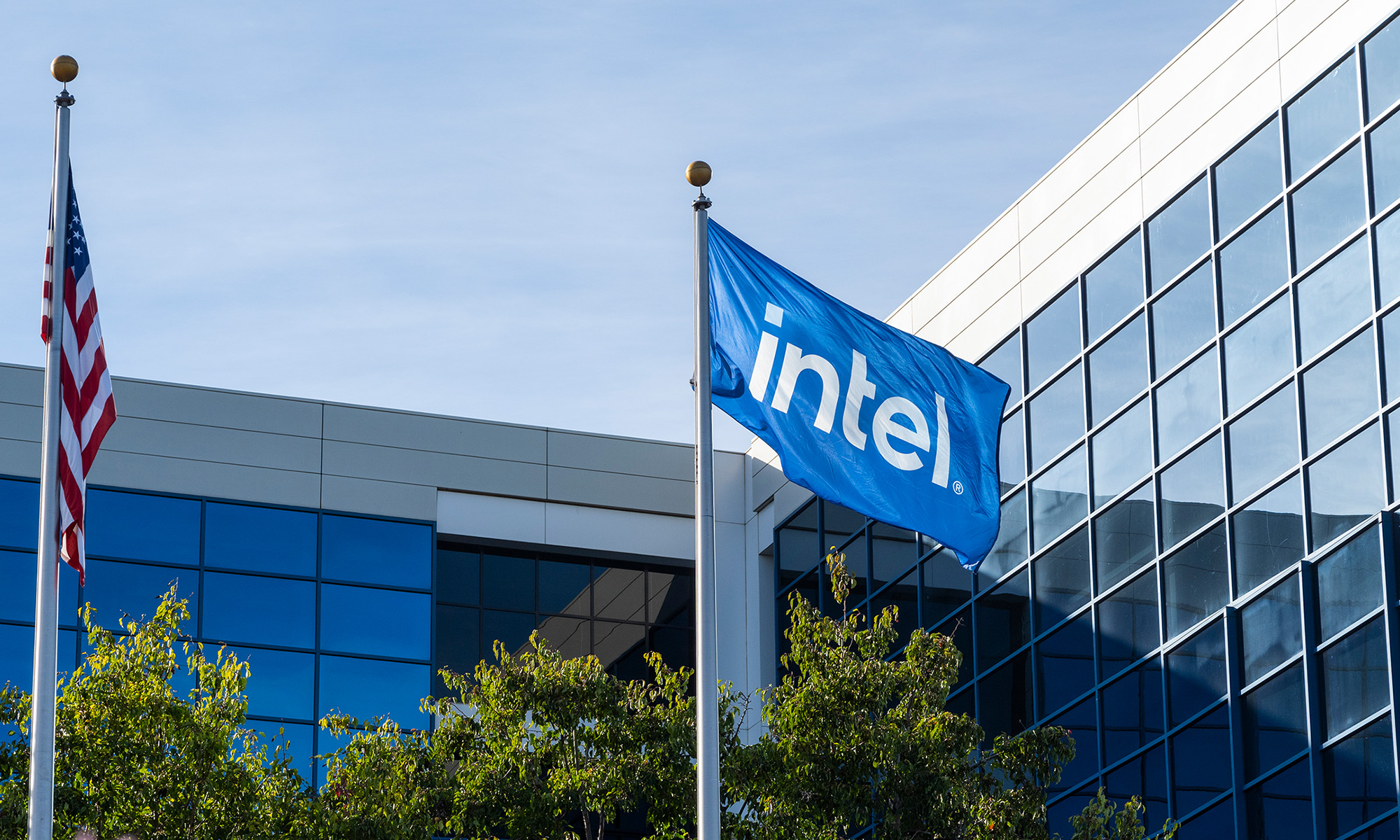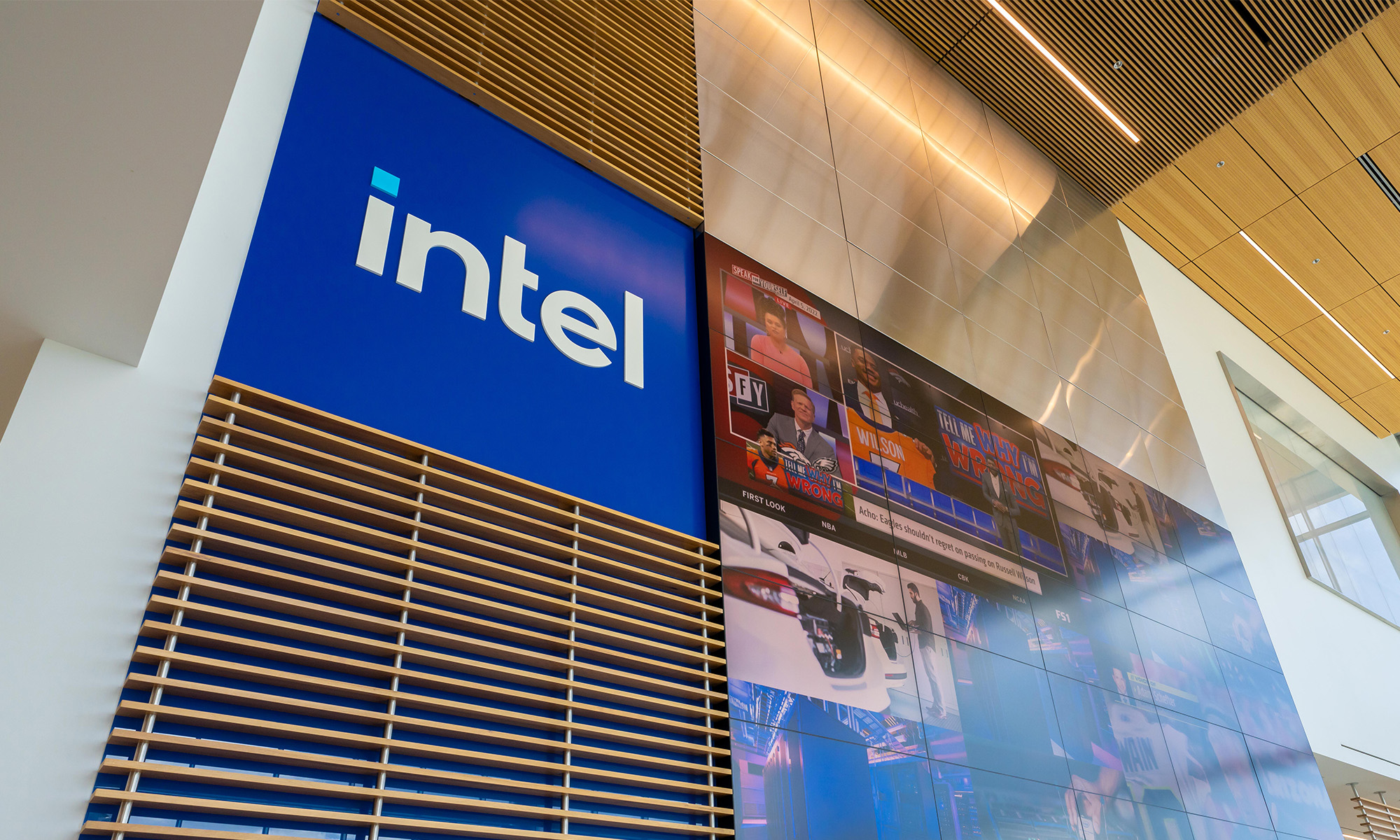Shares of chip giant Intel (INTC 2.81%) have performed well in recent years, thanks to both improvements in Intel's business (revenue is growing again; profitability is on the rise) as well as a higher overall stock market (a rising tide lifts all boats).
Nevertheless, while Intel's stock and financial results have been solid for a while now, and while I expect the company to continue to deliver strong financial performance this year, there are some long-term concerns that have me considering taking my profits and moving on.
Here are three.

Image source: Intel.
1. Manufacturing problems
Intel's product competitiveness has been held back substantially thanks to severe issues in Intel's Technology and Manufacturing Group (TMG), which is responsible for manufacturing the hundreds of millions of processors that Intel ships each year.
The impact has been on two fronts. Firstly, the slowdown in the company's transition to new manufacturing technologies as competitors speed up their own moves to next-generation technologies has meant that whatever competitive edge Intel had in that area has been eroded. Consequently, companies that build products using other chip manufacturers' technologies have access to increasingly competitive technologies relative to Intel's, further eroding the advantage that Intel once had.
The second impact has been to limit the pace at which Intel can deliver chip innovations. For example, Intel has been forced to sell chips based on its Skylake architecture -- a chip design that launched in the second half of 2015 -- for three years as the follow-on designs to Skylake were intended to be manufactured on the company's perpetually delayed 10-nanometer technology.
While Intel is clearly taking actions to ensure that this doesn't happen again, the company allowed its competitors to make up a lot of ground in terms of chip design and performance. It's not clear if Intel can enjoy the technology lead that it once had even when it finally brings its 10-nanometer tech into production.
Put simply, I've lost faith in the manufacturing organization within Intel -- and since this is such a critical part of the company's overall product strategy, it has shaken my faith in the company's medium- to long-term business prospects.
2. Increased competition
Although Intel has done a reasonable job of expanding its total addressable market and is making moves to capture a larger part of that market, the fact is that Intel is facing increased competition across the board in its core markets.
If Intel's manufacturing group were executing as it had historically, then I'd be less concerned about competitive pressures. Intel has strong leadership positions in its core markets, and with a clear manufacturing advantage, I'd trust the company to continue to dominate its competition.
Nowadays, when Intel's manufacturing lead has turned into, at best, parity and at worst a laggard position -- and those manufacturing stumbles actively impede the innovation that the company's product development teams try to deliver -- it's far less certain that the chip giant can successfully defend against material market segment share loss in the medium to long term.
3. Lack of transparency
Historically, Intel has been quite transparent with investors about its technology plans and has had detailed analyst days each year, diving deep into its business strategies.
Right now, it seems that Intel is cutting back on that transparency in a big way.
An Intel spokesperson told me that the company hasn't yet determined if it'll host an analyst day in 2018, which is highly discouraging. Moreover, Intel seems to have gone completely silent about the status of its long-delayed 10-nanometer chip manufacturing technology and hasn't said a peep about the follow-on 7-nanometer technology.
By contrast, Intel's main competitors update their respective investors regularly about the progress that they're making in bringing their future technologies to life.
The lack of transparency on Intel's part can't be viewed as anything but a negative. What, if anything, is the company trying to hide from its stockholders?






